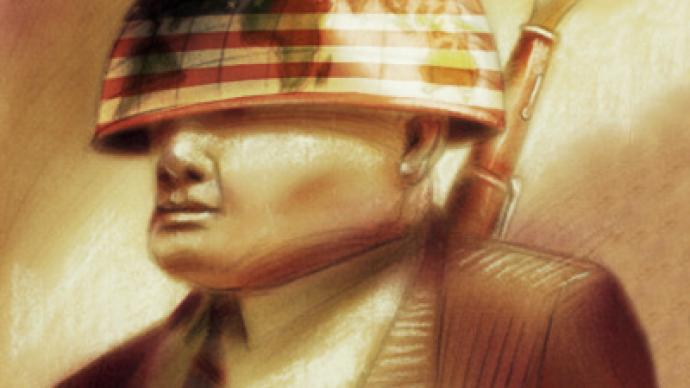US declares financial war on world - economist

There is no possibility of agreement at the upcoming G20 summit because the U.S. is declaring financial war on other countries, believes American economist Michael Hudson.
The U.S. has been pushing China to revalue its currency – at a time when Washington has been pumping billions of dollars into its economy – a move viewed by other countries as an attempt to deliberately weaken the greenback.The issue of exchange rates is expected to be one of the toughest discussion points at the G20 summit in South Korea later this week.Michael Hudson, a renowned economist and Wall Street financial analyst and advisor, says the meeting in Seoul will not bring an end to global currency wars.“The U.S. is going to China and saying ‘we want you to commit economic suicide just like Japan did. We want you to follow the same way: we want you to re-value your currency, we want you to squeeze your companies, we want you to go bankrupt so we can make our profit at your expense,” says Hudson.“We want you the Chinese to allow our banks to gamble on your currency and make a huge gain on foreign exchange speculation so that our banks can get out of the problem that we have got them into. Will you please help us by going bankrupt for our benefit? Well, you can imagine what the Chinese are saying – they are laughing,” Hudson adds.The American plan to devalue the dollar would flood the global economy with money that would be used to buy out everything that values at local markets, he believes.“Essentially, you’ll have America’s financial system and the banks acting as an army to raid foreign currencies.”The US will traditionally break any of its promises to other countries because ‘if there are no penalties – there is no agreement’, which has been the way of American diplomacy for the last 50 years, says the economist.“Deals are for other people to follow, not the U.S. It puts itself over and above the agreements.”China has been financing the American budget deficit with $US 2.5 trillion while the U.S. has been spending it on military, building bases around the world. It is taking aggressive action toward the creditor, interfering in its waters, believes Hudson.He says China’s reaction is, “You want us to pay for your military budget? You threaten us to make us do what you want us to do? You must be crazy!” President Barack Obama does not have any leverage to induce China to do the desired. The favor he will be demanding from G20 members literally means “please accept our paper dollars even though we have no way of paying for it and even though we can never pay off these debts, please accept them and let us buy out your real estate and companies with dollars that will never be repaid,” says Hudson.At the same time the U.S. refuses to do what its creation, the IMF, requires from all other countries in case of budget deficit: raise interest rates and privatize industries.“China is treating the U.S. dollar reserves it has like a hot potato,” he says. “They want to do two things: first of all they want to reciprocate and buy the U.S. companies – just as the U.S. wanted to buy China. The U.S. says ‘we will not let you buy filling stations here or refineries’. You can’t buy in America. We can buy in you, you can’t buy in America.”Naturally, America sees China as a potential enemy and that is why it is on top of the Pentagon’s list of strategic enemies. So China is not apt to finance the American war machine anymore.“The U.S. debt is other people’s asset.”“There is no way in the world that America can ever pay the foreign government debt that it owes,” the economist believes. The BRIC countries agreed at the summit in the Russian city of Ekaterinburg, in 2009, to gradually reduce dollar turnover to avoid collecting more of America’s debt that will never be paid.“The affective quantitative easing by the Fed is to turn the dollar into a pariah currency that everybody is trying to avoid because nobody wants them, you cannot use them to invest in the U.S. because of the nationalism here, other countries do not want dollars – what is the point in accepting more dollars?” questions Hudson.He believes that the time of the dollar as the reserve currency is over and the question now is how it will end – in a polite slow gradual manner or otherwise.












